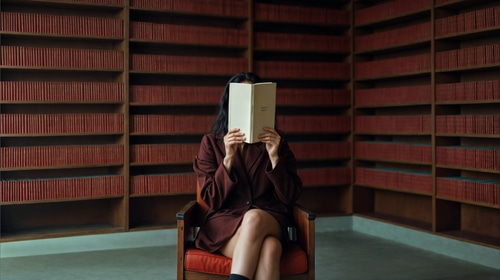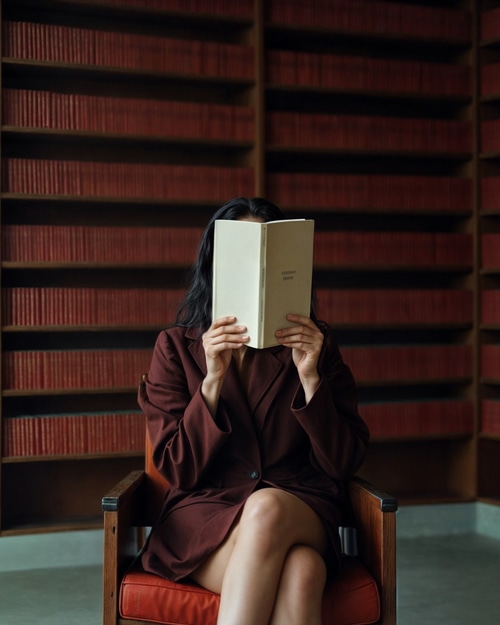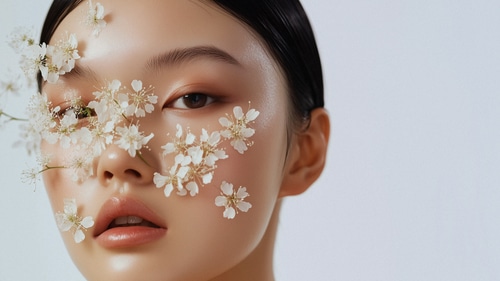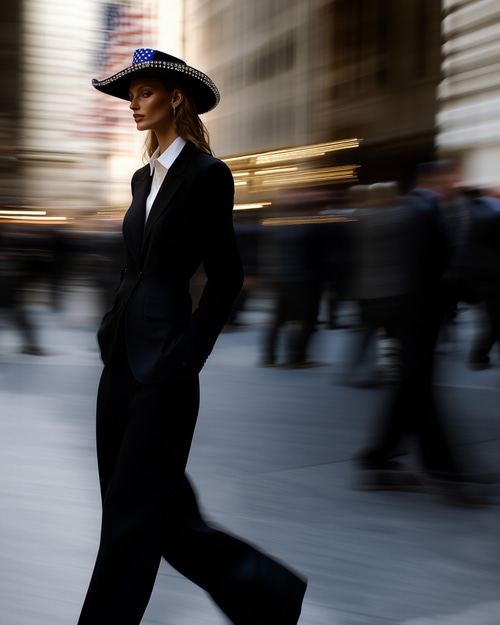

How Literature Can Power Luxury’s Next Chapter
Over recent years, luxury brands have increasingly turned to literary figures and activations to fuel brand engagement. However, with so many aspects of this world still unexplored, this story is only just beginning.
Last year in the United States, 782.7 million print books were sold — that’s 782.7 million physical, real stories in the hands of millions of readers. Book publishing continues to grow steadily worldwide, despite (or perhaps because of) a broad cultural aversion to AI-generated art. In 2025, we crave singular, human storytelling — narratives that immerse us in other lives, and deeper into our own.
This demand is driving growth in genres like fantasy, romance, and their hybrid 'romantasy', as well as LGBTQ literary fiction. People want books that make them dream — and they’re building communities around them. The #BookTok hashtag alone has amassed a staggering 46.1 million posts.
Even in highbrow literary fiction, book releases are becoming major cultural events. Last year, Sally Rooney’s Intermezzo was a blockbuster, garnering rave reviews and Vogue-covered book premieres — even without the author in attendance.
Luxury brands are paying attention. Literature offers a way to connect deeply with consumers in an authentic, cultural way — and when done right, it really works. Luxury book-themed pop-ups and activations have seen massive success, whether in the USA, or China, where certain initiatives have attracted millions of views.
Prada x Ottessa Moshfegh: A Blueprint for Luxury’s Literary Future
This month, Prada pushed literature’s role in luxury further than ever before. Their Spring/Summer 2025 campaign, starring Carey Mulligan, didn’t just feature the actress — it featured ten original characters written by the absurdly cool novelist Ottessa Moshfegh.
Moshfegh created a range of ‘protagonists’ — a romantic programmer, twin vampires, a puppeteer named Tabitha — each one brought to life through Prada’s collection. The campaign redefined fashion storytelling — it wasn’t just inspired by literature, but actually authored by a writer at the top of her craft.
In an interview with i-D, Moshfegh called it a “different kind of adaptation”:
Beyond the campaign visuals, the bound edition of ten original Moshfegh stories — exclusively sold at select Prada boutiques — have become a coveted collector’s item.
This collaboration sets a precedent for how luxury brands can elevate literature beyond curation — and into full-scale creative partnerships.
Valentino, Gucci, and the Power of Literary Mythmaking
If Prada has proven how a novelist can craft entirely new characters within a brand’s universe, Valentino’s literary collaborations show how brands can work with writers through curation and design.
Last week, Valentino partnered with Dream Baby Press on a curated collection of love letters written by novelists like Coco Mellors — shoppers could even take home a hand-penned letter from a Valentino boutique. This isn’t new territory for the house. Two years ago, Valentino collaborated with novelist and T Magazine editor-in-chief Hanya Yanagihara on a collection inspired by her literary hit A Little Life.
Yanagihara’s novel, an undeniable cultural touchstone, carries an almost mythic weight — its raw, intimate storytelling created a world in the way that the most compelling luxury brands do. That’s what Valentino today understands so well, as did Gucci under designer Alessandro Michele — his Gucci had thrived as it felt like an intricately woven narrative, filled with characters who existed in a larger-than-life, stylized world of their own making. They felt as if they had stepped straight out of the pages of a great novel.
From Curation to Creation: The Next Step for Luxury & Literature
Luxury brands have most existed in this space as curators:
- Miu Miu’s Summer Reads pop-ups wrapped classic books in branded packaging.
- Aesop’s ephemeral libraries offer themed book selections for cultural moments like International Women’s Day or Pride.
- Cours des Vosges and other luxury hotels are hiring ‘book curators’ to enhance the guest experience.
These efforts have been incredibly successful — but they only scratch the surface of what’s possible.
Brands could go even further, like with …
- Luxury book clubs — imagine a high-end version of Le Monde’s Instagram book club for Intermezzo, with celebrity-hosted discussions and exclusive literary salons. So many celebrities overlap between luxury and literature already host popular book clubs to much success – Kaia Gerber, Florence Welch, Emma Corrin, to name a few.
- Luxury publishing imprints — Burberry novels set in different parts of London? Dreamy, Valentino-published love stories? The storytelling possibilities are endless.
- Literary residencies & prizes — Chanel already launched a literary prize in this space; others could join, and offer grants or host residencies.
- Story-driven fashion shows — writers could collaborate with designers on fashion stories that feel more like immersive plays than standard shows.
- Next-level branded content — writers could join brands to take their stories from evocative copywriting to serialized stories. Not just referencing old stories important to their houses – as Saint Laurent did beautifully with their recent Proust-inspired holiday campaign – but telling ongoing completely new stories.
Two fascinating fresh case studies: Swedish perfume house 19-69 just collaborated with writer Bret Easton Ellis to create a fragrance inspired by his cult novel American Psycho. Universal Flowering created a fragrance to smell like the main character of Claudia Dey’s novel Daughter. More luxury brands could harness the power of fiction to turn their products into genuine cultural artifacts.
But there’s no reason brands should stop at recontextualizing existing literature. They have the power — and the resources — to bring entirely new stories into the world.
Brands have so much potential to dive further into the way clothes – or hospitality, or cars, or perfume – can become meaningful forces into shaping the stories of our lives, and how we see ourselves. Well-done fiction is a powerful tool to do so.
Wherever brands go from here, here at Al Dente, we’re ready to read all about it. Or better yet — help write the next chapter.


